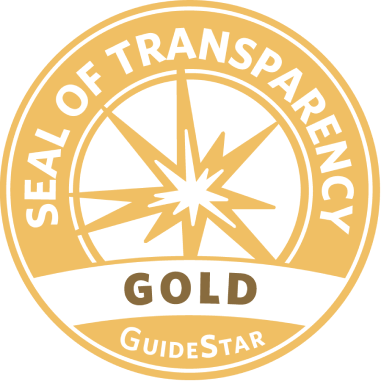Violence against women remains a pervasive issue in many parts of the world, and Iran is no exception. Cultural, societal, and systemic barriers often silence victims, leaving them trapped in cycles of abuse with limited resources or avenues for escape. In this challenging context, non-governmental organizations (NGOs) play a crucial role in addressing the issue, advocating for women’s rights, providing support services, and fostering societal change.
The Omid Foundation, along with other dedicated NGOs, has been at the forefront of efforts to combat violence against women in Iran. By offering a holistic approach to empowerment and safety, these organizations provide a lifeline for women seeking to reclaim their dignity and freedom. This article explores the multifaceted role of NGOs in combating violence against women in Iran, the challenges they face, and their transformative impact on individuals and communities.
Understanding the Scope of Violence Against Women in Iran
Violence against women in Iran manifests in various forms, including physical abuse, emotional manipulation, sexual violence, and economic deprivation. Factors contributing to the prevalence of violence include:
Patriarchal Norms: Deep-rooted cultural and societal beliefs often uphold male dominance and control over women.
Legal Inequalities: Gender-biased laws in areas such as inheritance, divorce, and custody rights disadvantage women and limit their ability to escape abusive situations.
Lack of Awareness: Many women are unaware of their rights or available resources due to limited access to education and information.
Social Stigma: Victims of violence often face shame, blame, and ostracism, discouraging them from seeking help.
These factors create an environment where violence can persist unchecked, making the work of NGOs all the more critical.
The Role of NGOs in Addressing Violence
NGOs like the Omid Foundation play a vital role in combating violence against women in Iran by addressing both immediate needs and systemic issues. Their efforts can be categorized into the following key areas:
- Providing Safe Spaces and Immediate Support
Many women experiencing violence lack access to safe spaces where they can escape abuse. NGOs fill this gap by offering shelters and crisis intervention services.
Safe Houses: Temporary shelters provide women with a secure environment to escape abusive households and begin the healing process.
Hotlines and Emergency Assistance: NGOs operate confidential hotlines to connect women with immediate support and resources.
Basic Needs Assistance: Many organizations provide food, clothing, and medical care for women fleeing violence.
These services offer a lifeline to women in crisis, allowing them to take the first step toward safety and recovery.
- Legal Advocacy and Rights Awareness
Navigating Iran’s legal system can be daunting for women seeking justice or protection from abuse. NGOs assist by:
Legal Counseling: Providing women with guidance on their rights and the legal options available to them.
Advocacy in Courts: Representing women in legal proceedings, particularly in cases of domestic violence or divorce.
Awareness Campaigns: Educating women and communities about legal protections and the importance of reporting abuse.
By empowering women with knowledge and representation, NGOs help them access justice and challenge discriminatory practices.
- Psychological and Emotional Support
Violence takes a significant toll on mental health, leaving many women with trauma that requires specialized care. NGOs offer counseling and therapeutic services to help women rebuild their confidence and emotional well-being.
Trauma Counseling: Individual and group therapy sessions help women process their experiences and regain a sense of self-worth.
Support Groups: Connecting survivors with peers fosters a sense of community and mutual support.
Life Skills Workshops: Programs in self-esteem building, communication, and stress management prepare women for independence.
These services enable women to recover from trauma and envision a future free from abuse.
- Education and Economic Empowerment
Economic dependence is one of the primary reasons women remain in abusive relationships. NGOs address this by equipping women with education and vocational skills to achieve financial independence.
Literacy Programs: Teaching basic reading, writing, and numeracy skills to empower women to manage their affairs.
Vocational Training: Offering courses in tailoring, handicrafts, computer literacy, and entrepreneurship.
Job Placement Assistance: Helping women find employment or start their own businesses.
Economic empowerment not only enables women to escape abusive situations but also contributes to broader societal change by challenging gender roles and stereotypes.
- Advocacy and Policy Change
NGOs are instrumental in advocating for legal and policy reforms to protect women from violence and promote gender equality. Their efforts include:
Lobbying for Legal Reforms: Advocating for changes in laws related to domestic violence, child custody, and marriage.
Awareness Campaigns: Using media and social platforms to highlight the issue of violence against women and mobilize public support.
Collaboration with International Organizations: Partnering with global entities to share best practices and strengthen advocacy efforts.
By influencing policies and shifting societal attitudes, NGOs create long-term solutions to combat violence against women.
The Challenges NGOs Face
While NGOs play a critical role in addressing violence against women, their work is not without challenges:
Government Restrictions: In Iran, NGOs often face bureaucratic hurdles, surveillance, and restrictions on their activities.
Cultural Resistance: Efforts to address violence against women may be met with opposition from conservative communities or individuals.
Limited Resources: Many organizations operate with minimal funding and rely heavily on volunteers, which can limit their reach and effectiveness.
Safety Concerns: Advocates and activists risk personal safety when challenging deeply entrenched norms and systems.
Despite these obstacles, NGOs persist in their mission, driven by a commitment to justice and equality.
Omid Foundation’s Impact
The Omid Foundation stands out as a beacon of hope for women in Iran, offering a comprehensive approach to empowerment and safety. By integrating education, vocational training, counseling, and advocacy, Omid creates pathways for women to break free from violence and rebuild their lives.
One of Omid’s unique strengths is its emphasis on long-term transformation. Participants not only receive immediate support but also gain the tools and confidence to lead independent, fulfilling lives. This holistic approach ensures that the impact of Omid’s work extends beyond individual women, fostering positive change in families and communities.
Stories of Hope
Nasrin’s Journey
Nasrin endured years of physical and emotional abuse before discovering the Omid Foundation. Through counseling and life skills workshops, she gained the courage to leave her abusive husband and start anew.
“Omid gave me the strength to believe in myself,” Nasrin says. “Today, I am not just surviving—I am thriving.”
Amina’s Transformation
Amina, a young mother from a conservative village, joined Omid’s vocational training program after fleeing domestic violence. She now runs a successful tailoring business and mentors other women in her community.
“Omid taught me that I am capable of more than I ever imagined,” Amina shares. “Now, I want to help others find their strength too.”
Conclusion
Violence against women is a deeply entrenched issue that requires a multifaceted response. In Iran, NGOs like the Omid Foundation are leading the fight by providing essential services, advocating for change, and empowering women to reclaim their lives.
While challenges remain, the progress achieved by these organizations is a testament to their resilience and impact. By supporting NGOs and amplifying their efforts, we can create a future where all women live free from violence and with the dignity and opportunities they deserve.
The Omid Foundation’s work reminds us that change is possible, even in the face of adversity. Together, we can continue to support their mission and ensure that no woman is left behind in the fight for safety and equality.

